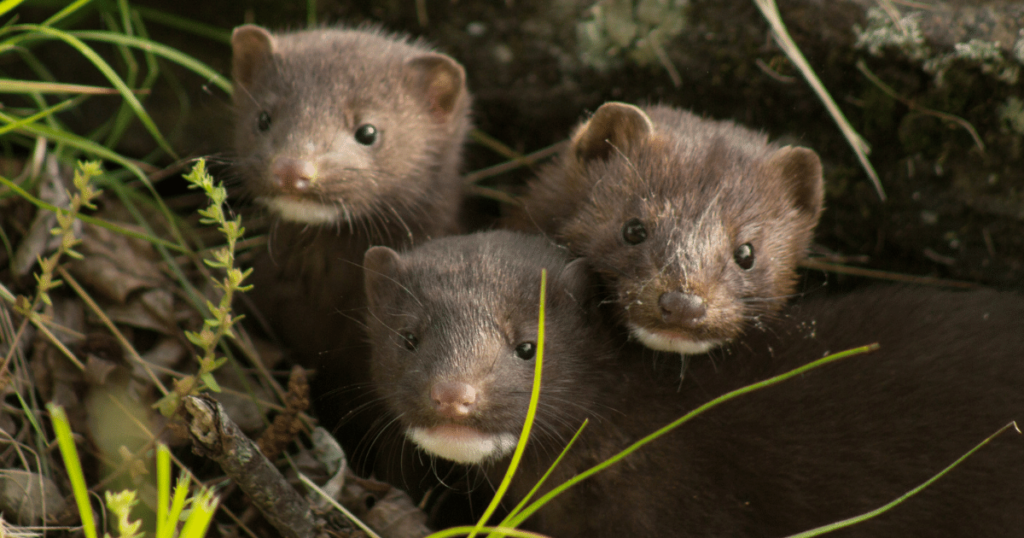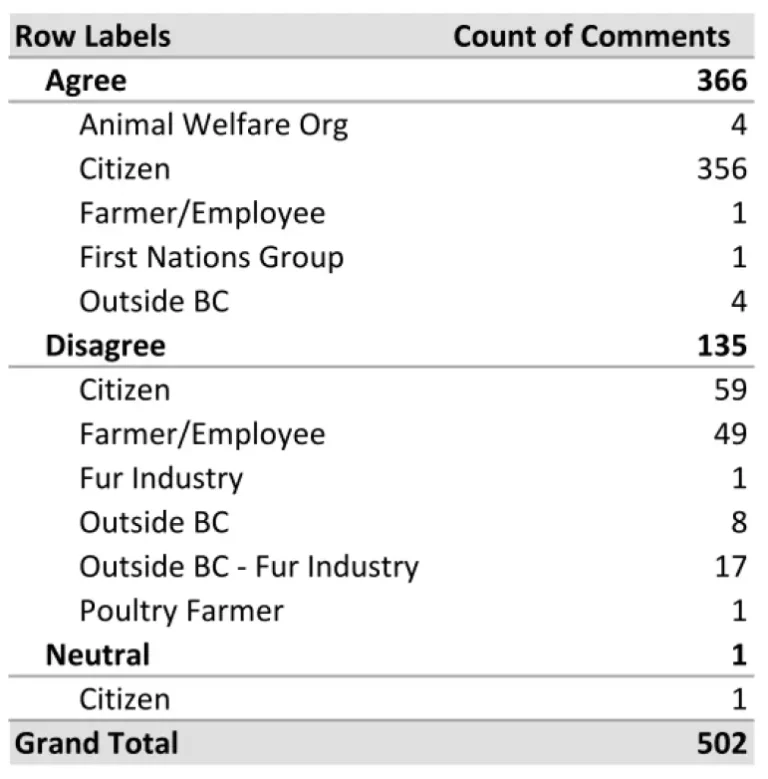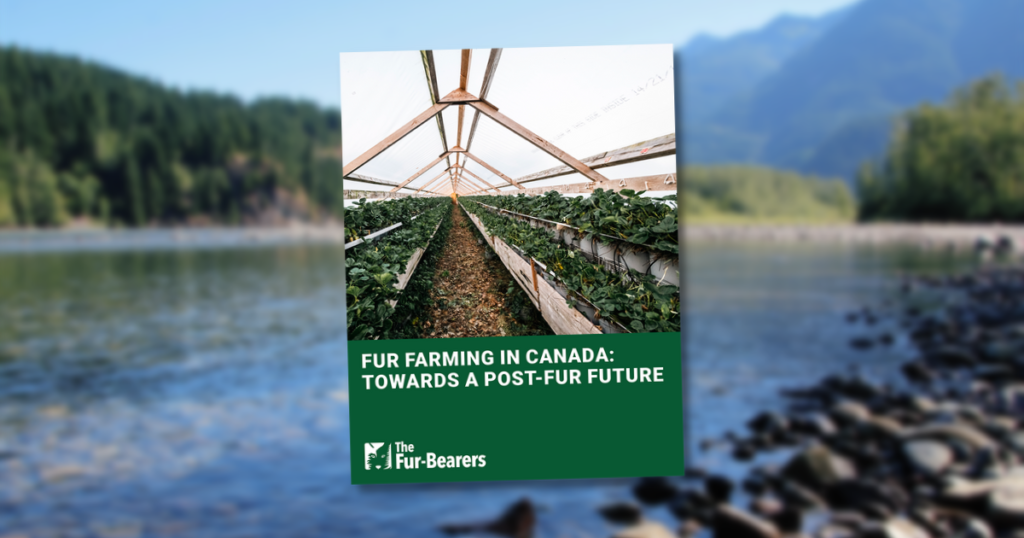
Regulation changes under British Columbia’s Fur Farm Regulation take effect on April 1, 2023. These changes were announced in November of 2021 when the province moved to phase-out mink farming due to the sector’s public health risks.
The April 1 changes bring in a permanent ban of live mink on farms. Until now, mink farmers were allowed to keep live mink on their farms. The province noted in a document that there are no longer any mink on fur farms in BC. In the Ministry of Agriculture’s 2022 transition binder, an issues note writes, “As of August 2022, no live mink remain on farms.”
The end of mink farming in British Columbia shows that change is possible when dedicated citizens speak out against fur farming. To show the level of commitment from advocates and citizens on this issue, The Fur-Bearers has obtained the results of comments received by the Ministry of Agriculture when it announced the mink farm ban. The ministry issued a mink farm bulletin in 2021 and asked the public for feedback on the decision to phase-out mink farming. The following is a table provided by the Ministry summarizing the responses.

The response not only shows a high level of citizen engagement in the process, but also that the public overwhelmingly supported the government’s decision to end mink farming. 73% of respondents agreed with the decision, including 356 citizens who voiced their support for the mink farming ban.
Mink farming is banned in BC. Fur farming for other species is still legal.
British Columbia’s ban on mink farming is the first in Canada. But the government has refused calls to repeal the Fur Farm Regulation and end fur farming for all species. In a statement, the Ministry told The Fur-Bearers in November 2022 that it is “not working on changes to the Fur Farm Regulation…” Currently, there is still one chinchilla fur farm operating in the province, and it is legal under BC’s Fur Farm Regulation to intensively farm fishers, martens, foxes, chinchillas, and nutria for their fur in British Columbia. Citizens of British Columbia have made it clear that they oppose fur farming and want it to end. This is supported by last year’s public opinion survey that showed that 81% of British Columbians support a national fur farming ban – the highest support for a fur farming ban out of any province in Canada.
The Fur-Bearers continues to advocate for an end to fur farming in British Columbia. We recently published a report on transitioning away from fur farming, highlighting the risks and harms that fur farming poses to animals, people, and the environment.
This report looks at the experience of other countries that have moved away from fur farming. These cases demonstrate that ending fur farming is not only possible, but that transitioning to other sectors like plant agriculture or renewable energy can benefit employers, workers, and the broader economy.
British Columbia has already taken leadership to support mink farm workers to develop skills to work in the province’s greenhouse sector. This is a step in the right direction, but with an active chinchilla fur farm operating in the province and the potential to open new fur farms for other species, there is still work to be done to fully transition away from fur farming and move this practice into the past.
Take Action!
The Fur-Bearers has developed a citizen engagement toolkit to raise the issue of fur farming at the federal level. Click here to download the toolkit and arrange a meeting or submit an email to your MP today!
If you’re in British Columbia, contact your MLA and subscribe to our newsletter to receive updates on our campaigns as we will be launching new actions this year.

